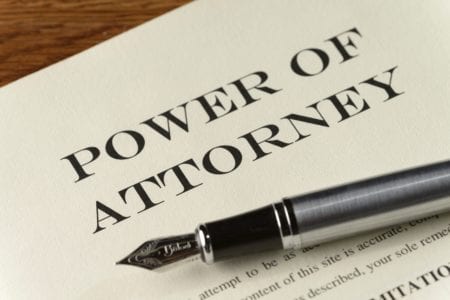Unintended Consequences: What Can Happen If You Don’t Have a Will and a Power of Attorney
Wills and powers of attorney are among the most important tools in the estate planner’s toolbox. Everyone should have these vital legal documents. Why? Let’s start with the last will and testament.
What Happens If You Don’t Leave A Will?
 When a person passes away without a will, his or her estate assets are distributed according to what is known as intestate succession. In this situation, “who gets what” follows strict guidelines, set by each state, with no regard for the emotional relationships between you, your spouse, your children, and members of your extended family. The state is not concerned about “what you would have wanted.” Your assets must be distributed, and the state has devised a system to do so.
When a person passes away without a will, his or her estate assets are distributed according to what is known as intestate succession. In this situation, “who gets what” follows strict guidelines, set by each state, with no regard for the emotional relationships between you, your spouse, your children, and members of your extended family. The state is not concerned about “what you would have wanted.” Your assets must be distributed, and the state has devised a system to do so.
Consider the following example of what would happen if you died intestate in Maryland. Let’s say you were married and had minor children when you passed away. In that case, your spouse would inherit half of your intestate property and your minor children would inherit everything else. Is this what you would have wanted? Probably not, but that’s what would happen—and it is just one example of how Maryland’s intestacy guidelines can lead to unintended, often undesired, consequences.
Who Represents Your Estate If You Didn’t Have a Will?
Here’s another unintended consequence of dying in the state of Maryland: The state will choose your personal representative. A personal representative is responsible for settling an estate. Given the importance of this role, it is likely that some members of your family will be unhappy with the state’s choice. This can lead to family infighting, costly litigation, and hard feelings between family members that last a lifetime.
Now let’s look at what might happen if you do not have a power of attorney and you become incapacitated.
What Are the Benefits of a Power of Attorney?
A power of attorney allows you to name a person you trust to make medical and financial decisions on your behalf in the event you can no longer do so on your own. Without a power of attorney, the state—again—will take charge of your affairs by choosing someone to serve as your guardian. This could be a person you never would have wanted to make critical decisions for you. You might not receive the type or level of care you would have wanted, for example, or financial decisions might be made that fail to reflect your wishes in any way.
In addition, the guardianship process itself is both expensive and invasive. A guardianship bond, which must be paid to the court when it appoints someone to act on behalf of another individual, can cost $3,500 per year for estates with assets of one million dollars. You will likely need an attorney to represent the guardian, file papers for an appointment, and handle ongoing annual filings. The costs of these services can be extremely high, and you will pay for them.
Perhaps worst of all, the court and your guardian will have complete control over your affairs for the rest of your life.
All of this can be avoided with a properly designed and implemented power of attorney.
Get Experienced Help Planning Your Estate
Clifford M. Cohen has more than 35 years of experience and dedicates his practice to guiding aging individuals in the Maryland and D.C. area through the creation and implementation of an estate plan. Contact us today at 202-895-2799 for a free case evaluation.
